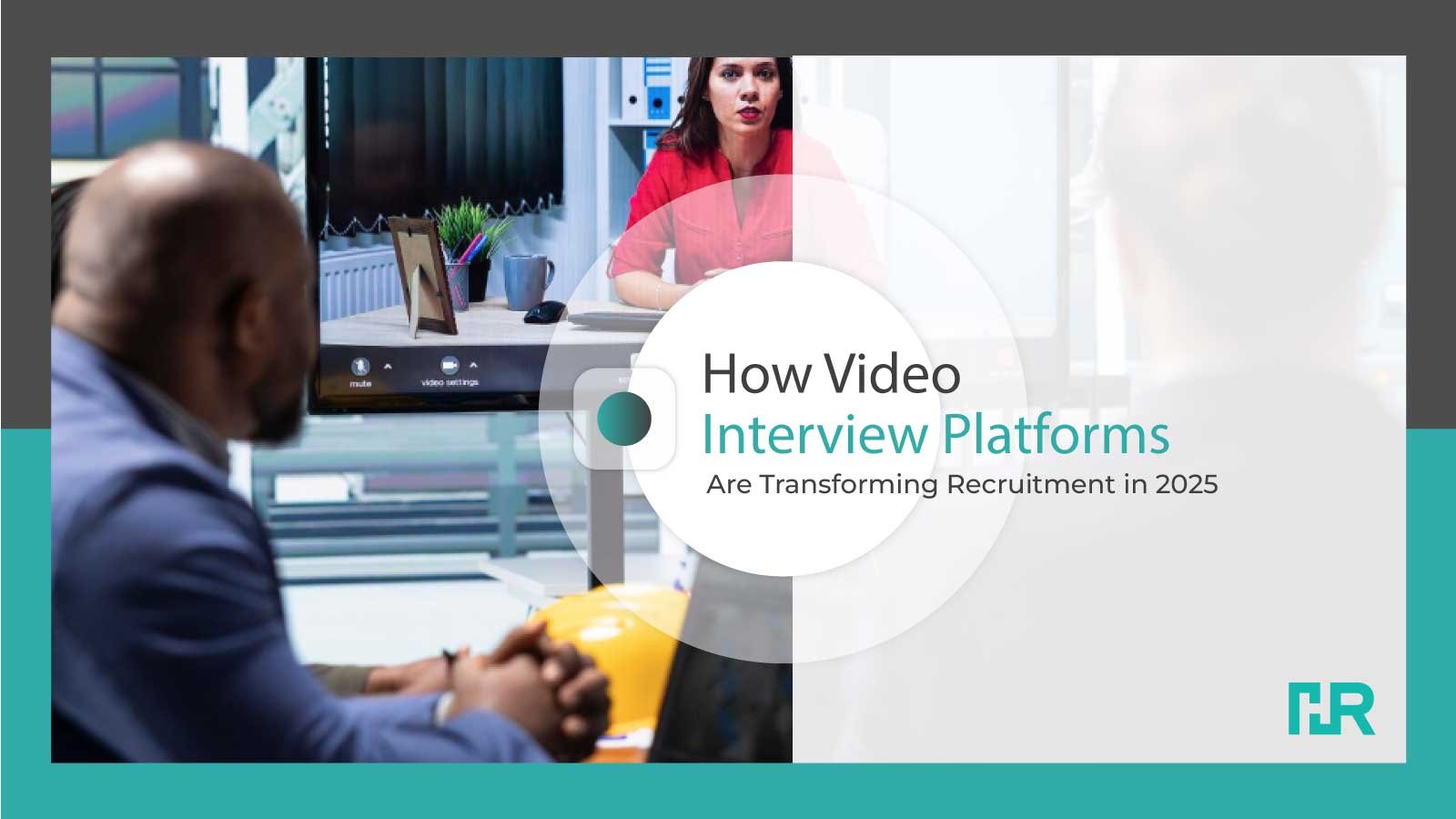
Recruitment in 2025 is not limited to office walls or strict timetables. Video interview platforms are now core tools for organizations that want to hire quicker, smarter, and more inclusively. In addition to facilitating remote interviews, these platforms are revolutionizing the candidate experience, assisting HR teams in making data-backed decisions, and minimizing the cost and time associated with hiring.
With AI-enabled features, integration into HR systems, and advanced analytics, video interviews are shifting from a nicety to a strategic differentiator. The shift is transforming the way businesses attract and retain workers in a more competitive environment.
The uptake of video interviewing has gained pace in recent years, passing from the imperative of remote working to become a norm in contemporary hiring. Businesses now understand that such platforms enable them to interact with candidates from geographies, providing access to a broader talent pool without the limitations of logistics or travel.
According to a recent survey by Hirevire, 82% of companies now conduct video interviews regularly. New platforms do more than just record conversations - they offer instant analytics, AI-powered reviews, and easy integration with applicant tracking systems (ATS), making hiring more strategic and less transactional.
A positive candidate experience has become a key driver in hiring the best talent. Video interviews enable candidates to take part on their schedule, eliminating the anxiety involved in standard scheduling and travel. Asynchronous interviews, in which candidates record responses on their own timeline, have gained popularity, providing flexibility without sacrificing the assessment process.
The formalized format of video interviews guarantees consistency and equity in assessment, while AI-based feedback can offer candidates prompt information on the status of their application. Transparency and speed in this way reinforce the employer brand by informing high-potential candidates that the company respects their time and attention.
Time-to-hire is still among the biggest issues recruitment has to deal with. Video interview platforms assist companies in making the process more efficient by alleviating scheduling conflicts, allowing multi-round interviews without logistical constraints, and automating clerical work.
Businesses also gain financially since costs associated with travel, on-site interviews, and recruiter time are reduced. Gartner estimates that companies applying AI-powered video interviewing can achieve up to a 40% reduction in time-to-hire, with improved hire quality at the same time through evidence-based candidate evaluation.
Analytics and AI are at the center of the recruitment revolution made possible through video platforms. Through the examination of verbal answers, facial reactions, and behavioral signals, these systems give recruiters objective information that reduces unconscious bias. Predictive analytics can predict candidate performance, while skill-matching algorithms assign job applicants to job requirements better than conventional methods.
The outcome is an even more data-based hiring process that blends human insight with the support of AI. The blended model allows organizations to make more intelligent hiring decisions but still ensure fairness and transparency.
The environment of video interviewing keeps changing. Asynchronous interviews, AI-powered assessments, and mobile-first platforms are no longer a choice - they are the norm that candidates and recruiters expect. Immersive technologies such as virtual reality are being tested by some organizations for skill-based simulations, while others aim to strengthen security and compliance in the management of candidate data.
Global talent sourcing has also become more possible than before. Organizations can access various talent pools without the limitations of geographical locations, broadening both the reach and accessibility of their hiring activities. These developments prove that video interviewing is not merely an interim solution but an inherent change in the manner of hiring. Best Practices for Integrating Video Interviews
Effective adoption of video interview platforms is more than simply applying technology - it calls for careful integration into existing HR processes. Transparent communication with candidates, standardized evaluation metrics, and constant recruiter training are needed to optimize the value of these platforms.
HR departments need to use AI insights as supplementary advice instead of absolute judgment and make sure each candidate interaction has a human element to it. By being mindful of technology as well as people interaction, organizations can use video interviews to gain efficiency without losing authenticity.
Even with the benefits, video interview software has issues that need to be actively addressed. Technical problems, including spotty internet connections or hardware compatibility, can affect candidate experience. Privacy is also important, as companies need to achieve compliance with data privacy laws such as GDPR and CCPA.
Moreover, while AI improves assessment, excessive dependency can cause neglect of nuanced human qualities. Those organizations that tackle these challenges strategically - by linking strong technology with human oversight can realize the full value of video interviews while avoiding danger.
Video interview platforms are now essential in 2025, revolutionizing the way organizations recruit. By optimizing candidate experience, decreasing time-to-hire, facilitating data-driven hiring, and opening up global talent pool access, these platforms are revolutionizing recruitment as we know it.
For HR departments looking to remain competitive, implementing advanced video interview solutions is no longer an option - it's a strategic necessity. Companies that leap will not only simplify their recruitment process but also become desirable, contemporary employers to top talent.
To participate in our interviews, please write to our HRTech Media Room at sudipto@intentamplify.com